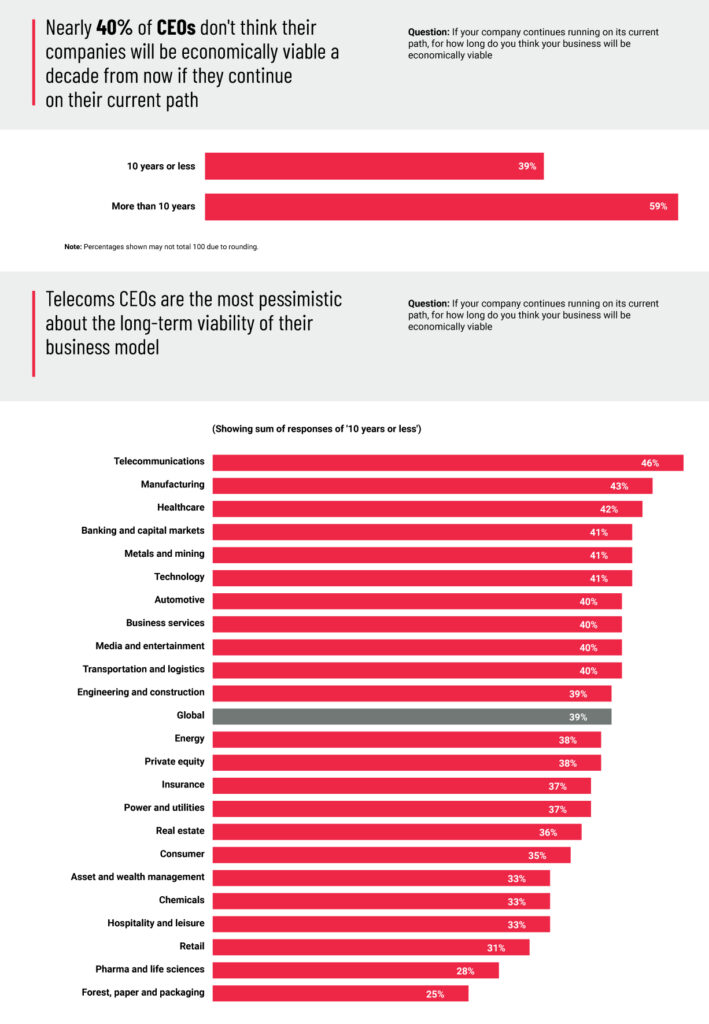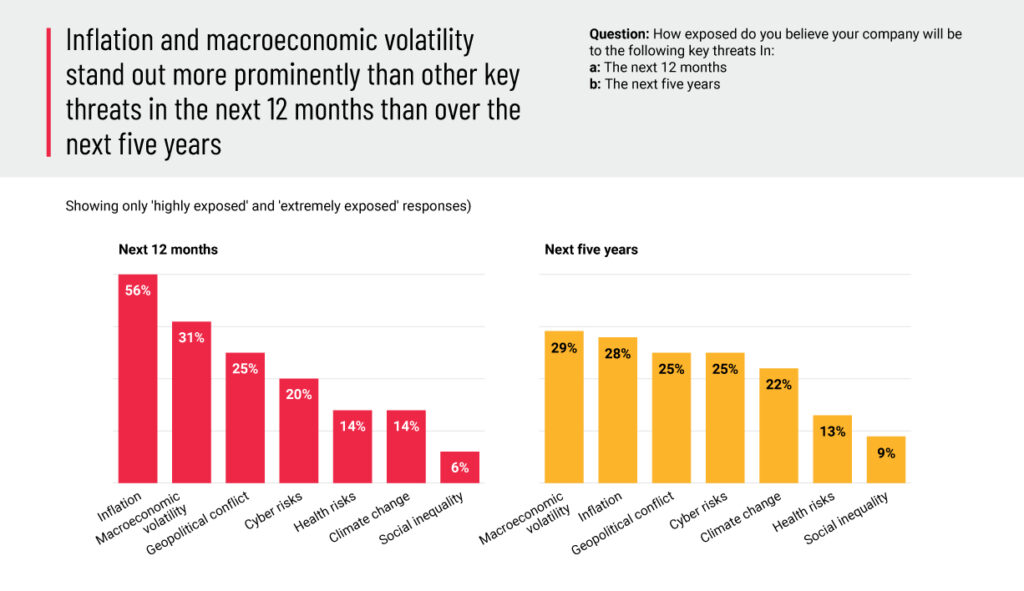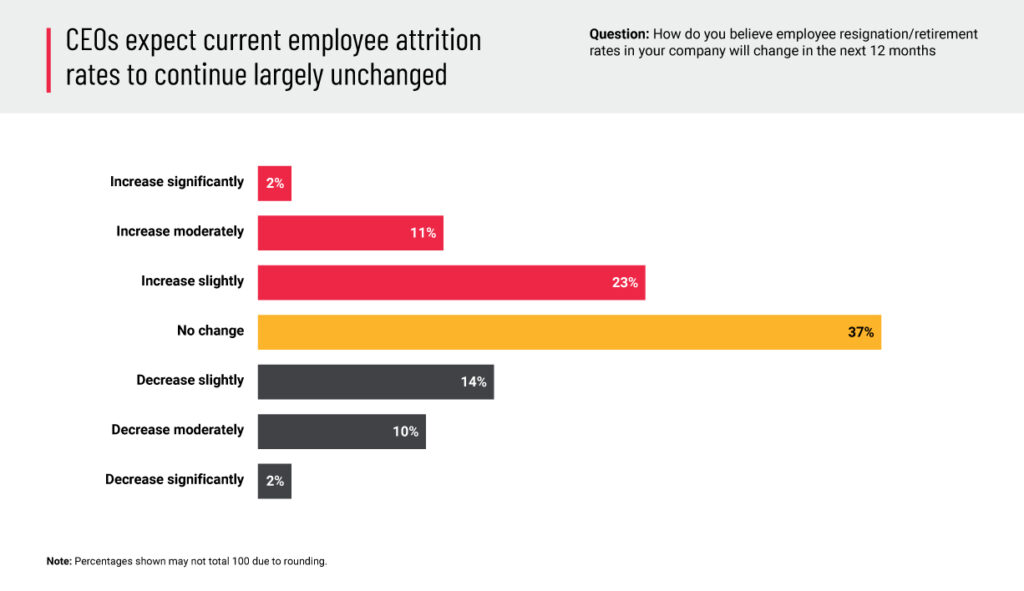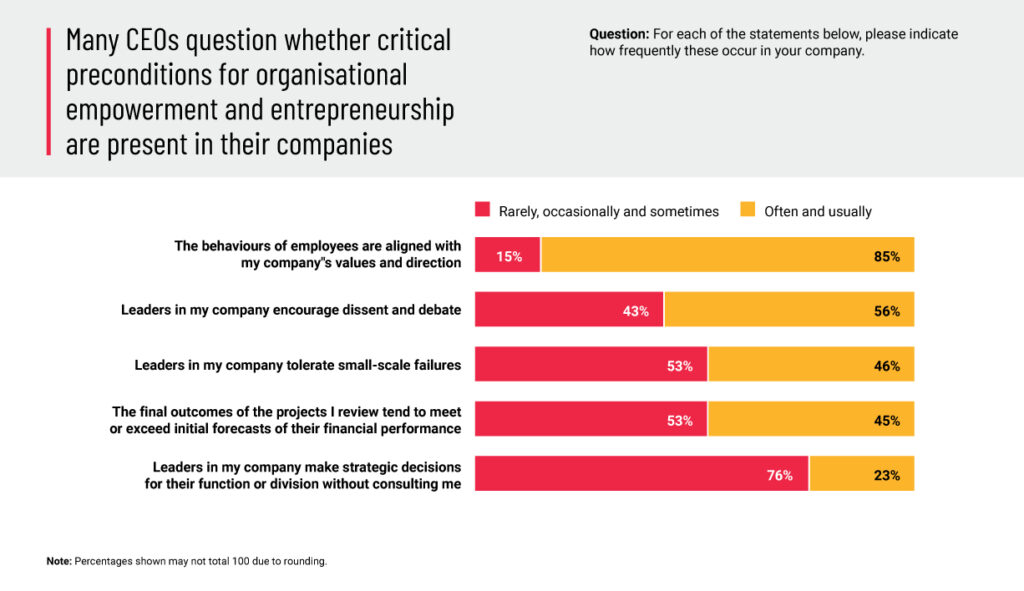Changing with the times was the overwhelming sentiment of leaders polled in PwC’s 26th Annual Global CEO Survey
The world today stands at a crossroads, and business in particular is faced with an evolutionary challenge it must embrace if it is to not just thrive, but survive. Companies and leaders cannot settle for mere incremental improvement, and the mantle of orchestrating that performance transformation falls upon the CEO, that talisman of organisational performance and growth.
While there is no single model for success, it is curious to see that a large number of CEOs across industries, geographies, and scale pinpointed the need for change as part of their responses for PwC’s 26th Annual Global CEO Survey.
With 4,410 CEOs polled from across 105 countries, 40% of these global CEOs believed their organisation will no longer be economically viable in ten years’ time if they sustain their current course. This overwhelming need for reinvention is made all the more stark in the face of daunting near-term challenges, such as the state of the global economy, with nearly 75% believing there will be declining growth in the year ahead.

Responding to the topic of the external forces likely to impact profitability of their industry, more than half of the CEOs surveyed pinpointed changing customer preferences, regulatory change, skills shortages, and technology disruption as the greatest forces for change, with 40% stating the transition to new energy sources and supply chain disruption would be a massive factor.

The major pain points of CEOs when viewing looming challenges over a 12-month horizon are inflation, economic volatility, and geopolitical risk. It is worth noting that these are complementary forces that can create a domino effect that is noteworthy. This scenario changes when zooming out and taking a medium-term perspective, at which time cyber risks and climate change join inflation, macroeconomic volatility, and geopolitical conflict as the headline risks.


Most interestingly, CEOs admitted to not actively looking to lay people off,since they believe attrition rates will remain high (something seen in the “Great Resignation”), with a majority saying churn rates will rise rather than fall over the next year. The only exception to this were CEOs in the United States, where more than half expect decreased attrition over the next 12 months.
CEOs alone cannot shoulder the burden of reinventing the business. To successfully do so, everywhere must pull together —C-suite leaders, middle managers, and frontline employees. However, most organisations aren’t primed for that. 43% of global CEOs said that leaders in their organisation don’t often encourage debate and dissent. 53% percent said their leaders don’t often tolerate small-scale failures. And 76% said their leaders don’t often make independent strategic decisions for their function or division.


Challenging though this is, it also represents an opportunity to create a more engaged, empower, and collaborative workforce that moves quickly to plug gaps or advance solutions that move the needle further.
The role of the CEO remains critical, perhaps now more than ever given the extraordinary times we live in. The fractured nature of society and industry have created a challenging business environment that will take collaborative effort to navigate. The varied forces impacting the landscape – from climate change. to geopolitical concerns, technological upheaval, and more – have served to create something of a race for reinvention.
This can be seen in the manner Microsoft quickly acquired ChatGPT to kickstart a new AI war, and that is just one of many examples. While the CEO faces choices, they are often hard ones, but then when did anything worthwhile ever come easily? We hope that this state of flux inspires leaders and organisations to shake up the status quo, and uncover unconventional growth formulas that help reshape our world for the better.


